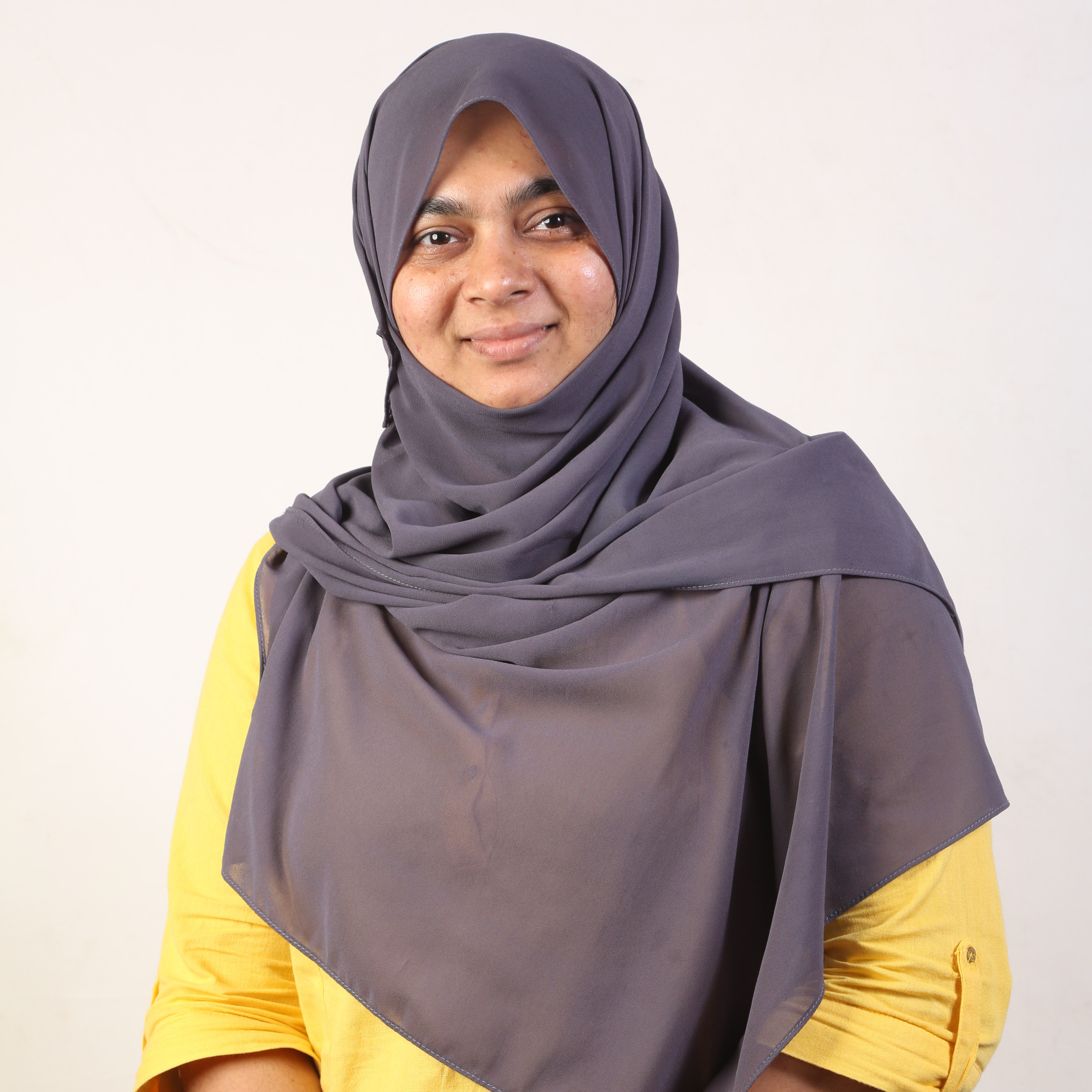Zulficar Ahamed Fathima Wazniya
Biography Narrative
ZAF Wazniya Pasha graduated with First Class Honours as an Attorney at Law from the Sri Lanka Law College in 2001 and completed the Master of Human Rights and Democratisation programme at the University of Colombo in 2019. She is a practising Notary Public and Company Secretary, as well as volunteering as legal counsel at the Muslim Women’s Research & Action Forum (MWRAF). Here she works with women affected by the Muslim Personal Law, undertaking counselling and Quazi Court matters.
She was introduced to peacebuilding, interfaith, transitional justice and reconciliation efforts when she worked at the Secretariat for Coordinating Reconciliation Mechanisms (SCRM) which came under the purview of the Prime Minister Office. At SCRM she worked as the Director of Research & Policy Unit for 3 years. During this time, she looked into the best practices of Transitional Justice from around the world, under specific themes such as women, children, disabled persons and mental health; and published a booklet titled, Transitional Justice Process in Sri Lanka.
Presently she is a lecturer of Business Law for the Business Program at ANC Education, Colombo, and is working with MWRAF as the Project Coordinator for Peacebuilding and Women Empowerment Projects. Under the peacebuilding unit of MWRAF, she is involved in conducting research, seminars and workshops on interfaith and intra-faith dialogues, with special reference to intercultural, multi-ethnic and religious cohesion. For her, “peace begins at home”.
Interreligious Activities and Initiatives
Common Concept that links all our Religions

